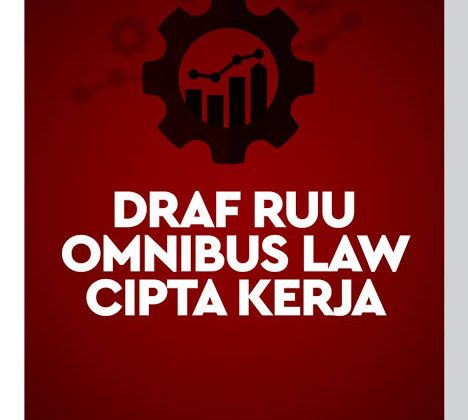Omnibus Law Job Creation Law Develops MSMEs
By: Rudianto )*
The Omnibus Law of the Job Creation Law is a breakthrough to overcome all overlapping regulations. Apart from being able to increase investment in Indonesia, this policy is also believed to be able to develop Micro, Small and Medium Enterprises.
Arif Rahman as Deputy for Human Resources Development of the Ministry of Cooperatives and SMEs (KemenkopUKM, explained that there are several facilities for MSMEs that are brought in the Job Creation Law (UU), especially the Cooperative and MSME clusters.
The facilities obtained by MSMEs include, ease of starting a business, ease of managing and ease of developing MSMEs.
Arif explained related to the ease of starting a business. MSMEs, first, micro businesses are still exempt from the cost of business permits and small businesses are given a business permit fee waivers.
This rule is regulated in Article 12 paragraph 1 (b) of the Job Creation Law which reads, exempting business licensing fees for micro-businesses and providing business licensing fees for small businesses.
Second, there is a single permit and the licensing procedure is simpler and simpler thanks to the online single submission (OSS).
Third, the role of the central government, local governments, BUMN, large national and foreign businesses in providing financing for micro and small businesses has not changed, even access to claim data will be wider, more varied and easier.
Furthermore, related to the ease of managing MSMEs in the Job Creation Law, Arif described the following, first, simplified and simplified tax administration, as well as tax and customs incentives for micro and small businesses.
Second, providing legal assistance and assistance services for micro and small businesses.
Third, there is training and assistance for the use of accounting systems / applications or financial records for micro and small businesses.
Then fourth, for micro and small businesses a wage is applied based on an agreement between the entrepreneur and the worker, at least a certain percentage of the average consumption of the community.
Fifth, is protection for MSMEs so that they are not controlled or owned by large businesses, which will be strengthened.
Then the sixth, increasing business opportunities for MSME products with supply chain partnerships.
In addition, it also regulates the ease of developing MSMEs, including MSME business activities that can be a guarantee for accessing business financing credit. Not only that, the registration process for Intellectual Property Rights (IPR) is also said to be made easier and simplified.
In addition, with regard to raw materials and industrial auxiliary materials made easier as well as export facilities for micro, small and medium enterprises which are being echoed, there is also an allocation of products for micro and small businesses and cooperatives from domestic production in the procurement of government goods or services. Then there is a special allocation fund (DAK) to provide support for empowerment and development activities of MSMEs.
As for the matter of expanding the market and promoting its products, MSMEs also have greater opportunities in toll road rest areas and public infrastructure such as terminals, airports, ports, train stations and others.
In addition, the Job Creation Law also contains regulations regarding the incubation of the creation and growth of new businesses, as well as strengthening the capacity of actors for startup businesses.
This law also makes it possible for MSME actors to absorb more labor and make cooperatives easier.
Member of Commission VI DPR RI, Darmadi Durianto, ensured that the Job Creation Law which had been passed by the DPR RI would provide many conveniences and benefits for Micro, Small and Medium Enterprises (MSMEs) entrepreneurs.
The Job Creation Law which was passed on October 5 was also able to provide a legal aspect of MSMEs which so far did not have a legal standing or legal basis for MSMEs at low cost and without a certificate from a notary.
The enactment of the Job Creation Law is of course expected to be able to develop MSMEs and this will be realized in regulations that require a minimum of 30 percent public infrastructure facilities for promotion places, business places and the development of micro and small businesses.
Darmadi assessed that the Ciptaker Law has provided many protections and opportunities for strengthening MSMEs in Indonesia, especially in UMK activities.
In addition, the Job Creation Law is also able to ease the requirements for cooperative membership, from 20 to 9.
This convenience is certainly very beneficial for the sustainability of MSMEs and cooperatives, especially during the Covid pandemic where people’s purchasing power has decreased significantly.
)* The author is a citizen living in Yogyakarta
